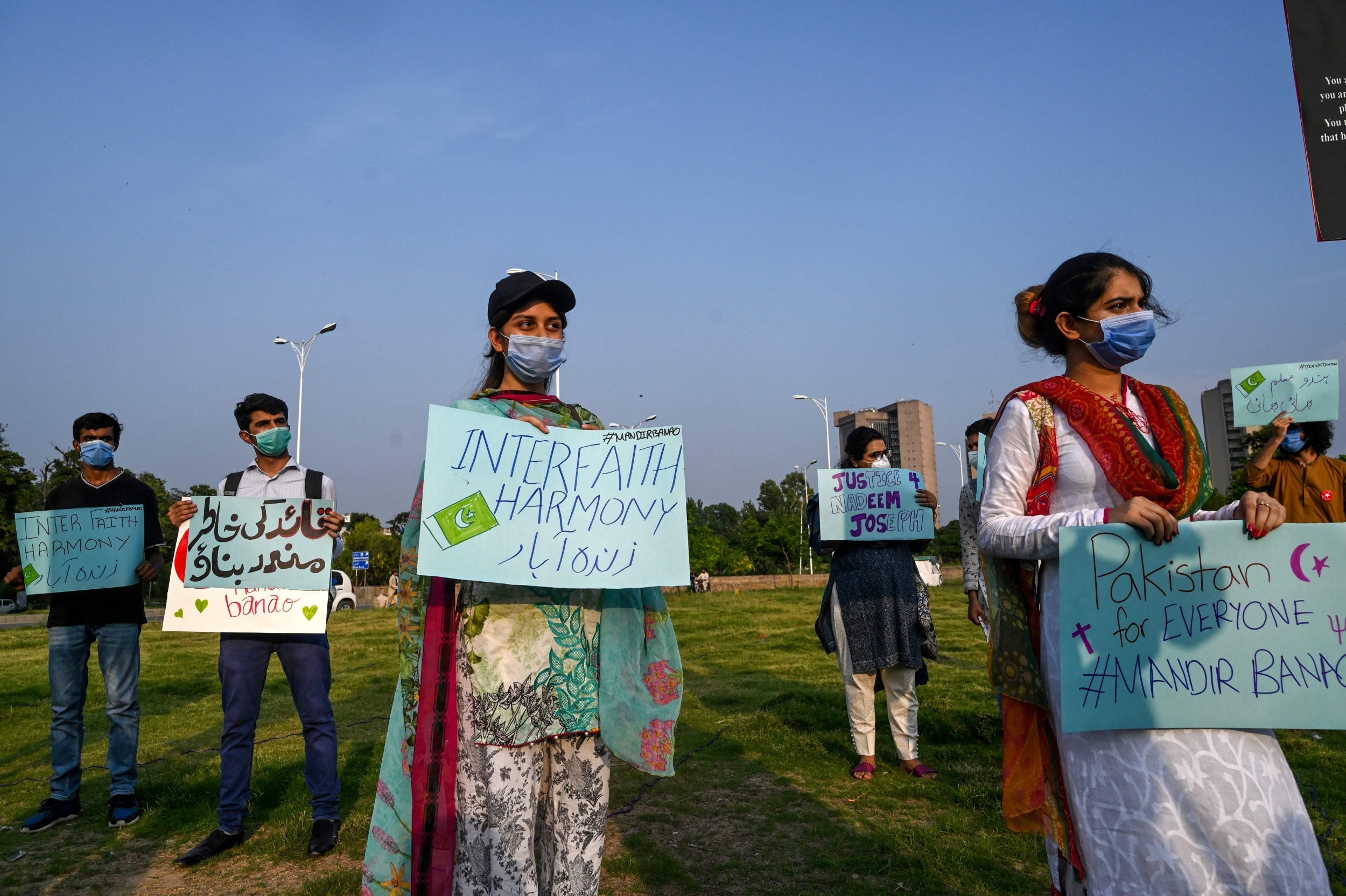Pakistan requests backing of Islamic scholars over construction of Hindu temple in Islamabad
When he came to power in 2018, Imran Khan pledged to protect Pakistan's eight million Hindus. But his administration now appears to be stepping back from responsibility for key project in capital

The Pakistan government has sought advice from a panel of top Islamic scholars on whether the government can legally fund the construction of a first Hindu temple in Islamabad, after protests halted work at the site.
The Ministry for Religious Affairs has written to the Council of Islamic Ideology, a constitutional body that advises the legislature whether or not a certain law is repugnant to Islam, in a move that is seen as a step back by Imran Khan’s administration.
A ground breaking ceremony was held on 23 June for the construction of the Shri Krishna Mandir (temple), which was to include a temple, crematorium and community centre and received some Rs100m (£500,000) of funding from the government.
But within days of the start of construction and amid criticism from religious leaders, some members of the public took it upon themselves to stop the project, invading the site. In one video, a young man could be seen tearing down the wall, while in another a man stood on a pile of bricks and said Azaan (the call to prayer), as a declaration that a temple could not be built on the land.
Protesters have also petitioned the Islamabad high court to stop the construction, with judges saying they will await the guidance from the CII.
In its letter to the CII, the ministry asked it “to advise that whether government funds can be used for a new construction of a minority place of worship”.
Lal Malhi, a Hindu member of Pakistan’s parliament, told The Independent that Islamabad’s Hindus had for a long time been calling for a place to worship safely in the capital.
He said the Hindu Council of Islamabad had decided to halt construction for the time being, “following some unpleasant incidents at the site”.
Mr Malhi added that the wall was being constructed to secure the area, and that this initial expense was being borne by Hindu Council. “Now we shall wait for the advice of CII [to see if we can continue],” he said.
When he came to power in 2018 after his campaign was backed by the country’s powerful military and most of the country’s conservative Islamist clerics, prime minister Khan pledged to protect the religious freedoms of Pakistan’s eight million Hindus.
But the government’s backing of the Islamabad temple project has met with a storm of criticism from religious leaders, media and politicians.
Most prominent among them was the former chief minister of Pakistan’s Punjab province and an ally of Mr Khan, the speaker of the Punjab assembly Chaudhry Pervaiz Elahi.
He had complained that: “Pakistan came into being in the name of Islam. Constructing a new [Hindu] temple in its capital city is an insult to Islam.” He said he was in favour of rights for minorities, but suggested maintaining existing places of worship so that these could be used instead.
A group of Islamic religious leaders in a joint press conference warned the government against supporting the temple, arguing that “the government will allocate funds from the exchequer, the source of which is the tax money of Muslims. We would not allow our money to be used for the construction of a den of infidels”. The damage to the site occurred shortly after this statement was made.
While Pakistan has millions of Hindus, the vast majority live in the southern province of Sindh. There are only 3,000 Hindus living in Islamabad itself.
The capital does have an existing 16th century temple, built as a shrine to the Hindu deity Ram. However, Hindus are not allowed to pray there as it has been declared a heritage site, and the temple is surrounded by restaurants and shops.
The rules are strictly enforced, with a caretaker at the temple named Anwar saying he could not allow anyone in to worship, citing its heritage status.
Subscribe to Independent Premium to bookmark this article
Want to bookmark your favourite articles and stories to read or reference later? Start your Independent Premium subscription today.

Join our commenting forum
Join thought-provoking conversations, follow other Independent readers and see their replies